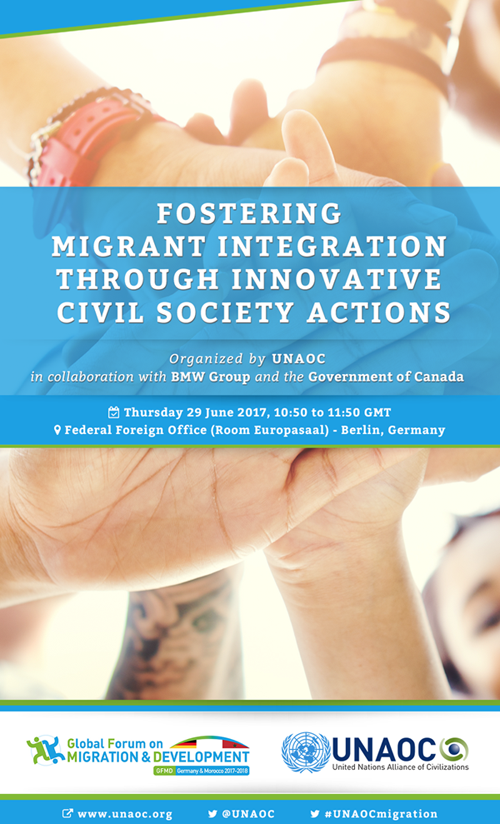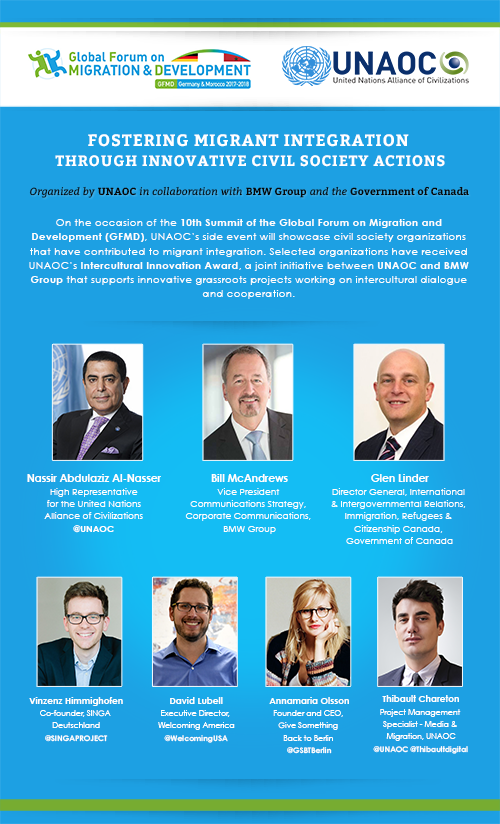As part of its work toward a more peaceful, more socially inclusive world, the United Nations Alliance of Civilizations (UNAOC) has researched and explored how different actors in society can work together to find concrete solutions towards a better integration of newcomers – refugees, asylum-seekers, and migrants pursuing family reunification, education or employment – within our modern societies.
Throughout its various programs and initiatives, UNAOC has brought together journalists, media experts, academics, civil society organizations, youth and young leaders, policy makers, representatives of governments and international organizations, educators, migrants, as well as the business community, including tech companies, to come up with global recommendations to help integrate immigrants and refugees into more welcoming societies.
This endeavor stems from the understanding that regional and domestic civil society initiatives are among the most creative and innovative when it comes to creating conditions that are conducive to the integration of newcomers. Civil society initiatives are often designed by communities that are directly impacted and affected by the arrivals of new groups.
In this context, civil society organizations can help promote non-discrimination, provide training, foster trust and engage communities. They can also act as trusted reporters providing valuable information on incidents and delivering effective strategies and campaigns, as they often have experience in developing methods, definitions, and indicators related to migration.
As part of its side event at the 10th GFMD Summit Meeting, and on the margins of Roundtable 3.2, “Strengthening Cooperation – Enabling Civil Society Contributions in Migrant Integration,” UNAOC will showcase the work of various civil society organizations that have received its Intercultural Innovation Award, a joint initiative between UNAOC and BMW Group that aims to select and support innovative grassroots projects which encourage intercultural dialogue and cooperation around the world, making vital contribution to prosperity and peace.
Format:
Presentations by civil organizations representatives and/or beneficiaries will take the format of a TED talk: each presentation will be concise (7-10 minutes maximum) with a focus on lessons learned and recommendations. Each speaker will present standing and will be encouraged to use visual elements (video, photos, etc.) to keep the audience engaged.




